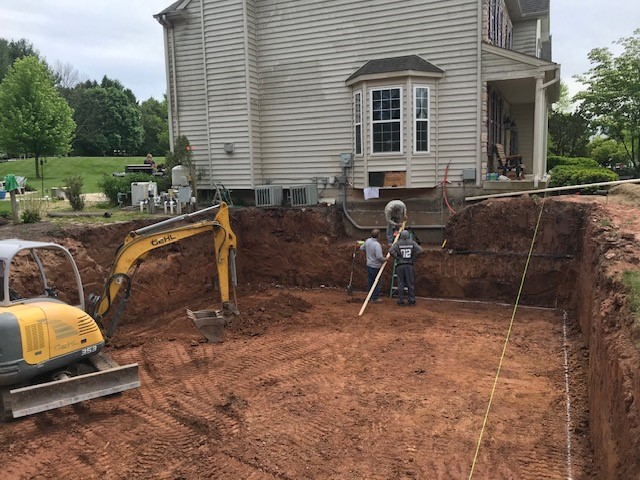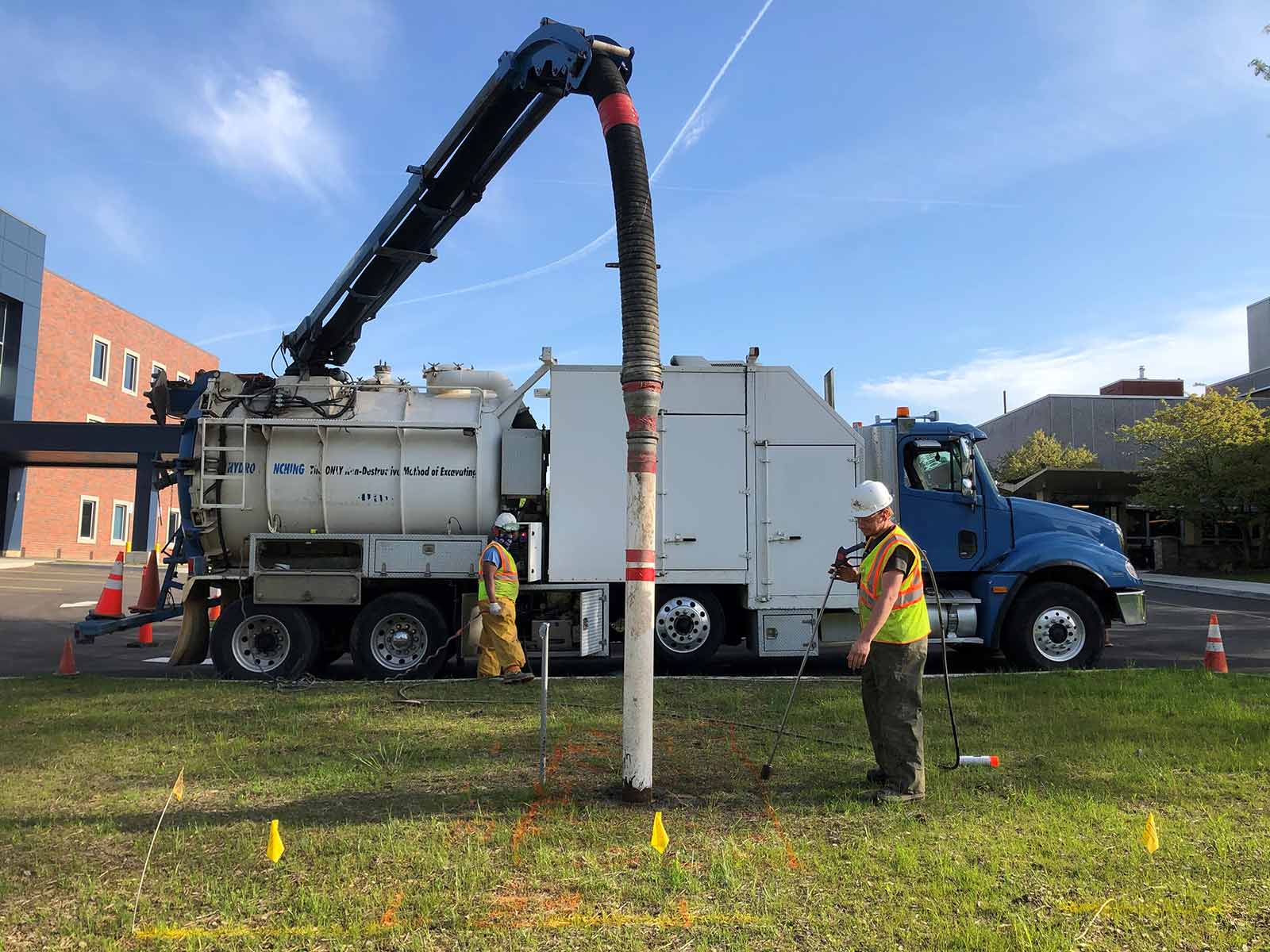Residential Excavating Ohio - Specialized Excavation for Ohio Residences
Residential Excavating Ohio - Specialized Excavation for Ohio Residences
Blog Article
Thorough Expedition: The Science Behind Superior Excavation Practices
From ancient hand tools to modern hydraulic excavators, the evolution of excavation techniques has been a testimony to human ingenuity and technological developments. What genuinely sets superior excavation practices apart is a deep understanding of geological concepts, combined with the use of innovative devices and methods.
Development of Excavation Techniques
Throughout history, the advancement of excavation strategies has actually played a crucial role ahead of time building practices and archaeological explorations. From the primary devices used by our forefathers to the advanced equipment used in contemporary times, the development of excavation approaches has considerably transformed exactly how we come close to numerous tasks.
In ancient times, hand-operated labor with standard tools such as pickaxes, shovels, and wheelbarrows was the primary approach of excavation. This labor-intensive process limited the deepness and extent of excavations, typically causing sluggish progression and limited access to particular sites. Nevertheless, as human beings advanced, so did the tools and methods made use of for excavation.
The Industrial Change marked a turning point in excavation techniques with the intro of steam-powered machinery. This advancement changed the area, permitting faster and a lot more extensive excavations. In contemporary times, innovation plays a crucial role in excavation, with developments like GPS systems, drones, and 3D scanning improving accuracy and efficiency in the field. The development of excavation methods proceeds to form the means we construct, discover, and recognize the globe around us.
Duty of Modern Technology in Excavation

The combination of advanced technology has basically transformed the field of excavation, enhancing accuracy and effectiveness to unmatched degrees. Among the crucial technological innovations that has considerably impacted excavation techniques is the use of GPS systems. These systems enable specific mapping of excavation sites, enabling drivers to accurately situate underground energies and frameworks. Furthermore, the use of telematics in excavation equipment has actually allowed real-time monitoring of maker efficiency, causing proactive maintenance and raised functional productivity.
Furthermore, the development of 3D modeling and simulation software program has structured the preparation process for excavation jobs. Operators and engineers can currently envision the entire excavation process before damaging ground, recognizing potential challenges and enhancing process. Together with this, the execution of drones in excavation tasks has actually facilitated aerial surveys, volumetric measurements, and site examinations with unmatched speed and accuracy.
Geological Principles in Excavation
An understanding of geological principles is necessary for making certain the architectural honesty and security of excavation websites. Geological variables play an important function in figuring out the expediency and security of excavation jobs (lancaster excavation). One key geological principle to consider is the sort of dirt or rock existing at the site. Different soil kinds, such as gravel, sand, or clay, have varying levels of security and need different excavation methods. Natural soils like clay might call for extra support to prevent collapses, while sandy dirts may be prone to disintegration during excavation.
In addition, the geological framework of the location, including mistakes, fractures, and rock formations, have to be very carefully evaluated to recognize prospective threats and obstacles. Excavating near mistake lines or unsteady rock formations can cause instability and potential dangers. By conducting detailed geological surveys and evaluation, excavators and engineers can establish approaches to reduce threats and guarantee the effective completion of excavation jobs. Inevitably, integrating geological concepts into excavation methods is crucial for accomplishing secure, reliable, and sustainable results.
Latest Tools for Excavation
In the realm of excavation practices, modern technologies in tools have reinvented the efficiency and precision of excavation procedures. These drones can supply detailed aerial studies of excavation websites, offering real-time information on topography and potential hazards.
An additional cutting-edge device acquiring appeal is the application of 3D printing technology for developing custom-made excavation equipment. This enables the production read review of specialized devices that are tailored to the particular needs of a task, raising efficiency and reducing downtime.
In addition, developments in products science have actually resulted in the growth of stronger and a lot more durable excavation devices. dump truck companies in ohio. Tungsten carbide-tipped excavator attachments, for instance, deal exceptional performance in challenging ground conditions, boosting productivity on-site
Science's Influence on Excavation Practices

Furthermore, innovations in products scientific research have led to the production of stronger, more sturdy excavation tools and tools. For example, using composite materials in shovels and miners has improved their performance and longevity, eventually enhancing productivity on excavation websites. Furthermore, clinical study on soil auto mechanics and geotechnical design has supplied important understandings into dirt behavior, enabling excavation professionals to make educated choices relating to excavation techniques and dirt stabilization techniques. On the whole, scientific research proceeds to drive advancement and enhancement in excavation practices, making excavation tasks more reliable, affordable, and sustainable.

Verdict
To conclude, the development of excavation methods has been greatly affected by improvements in innovation and a deeper understanding of geological concepts. The most recent tools and tools utilized in excavation have boosted effectiveness and precision in the area. The application of clinical her latest blog understanding has significantly improved excavation practices, bring about a lot more effective and lasting approaches for excavating numerous types of products.
In the world of excavation techniques, modern advancements in tools have transformed the performance and accuracy of excavation procedures. By leveraging browse around these guys scientific principles, the excavation industry has been able to considerably improve effectiveness, accuracy, and safety in excavation procedures. GPR permits excavation groups to non-invasively check and map subsurface frameworks, energies, and possible threats, allowing them to plan excavation tasks with better accuracy and minimized risk of mishaps.
Furthermore, scientific study on soil mechanics and geotechnical design has given useful insights right into soil actions, enabling excavation experts to make informed choices concerning excavation methods and dirt stabilization strategies. In general, scientific research proceeds to drive development and improvement in excavation techniques, making excavation projects more effective, affordable, and lasting.
Report this page